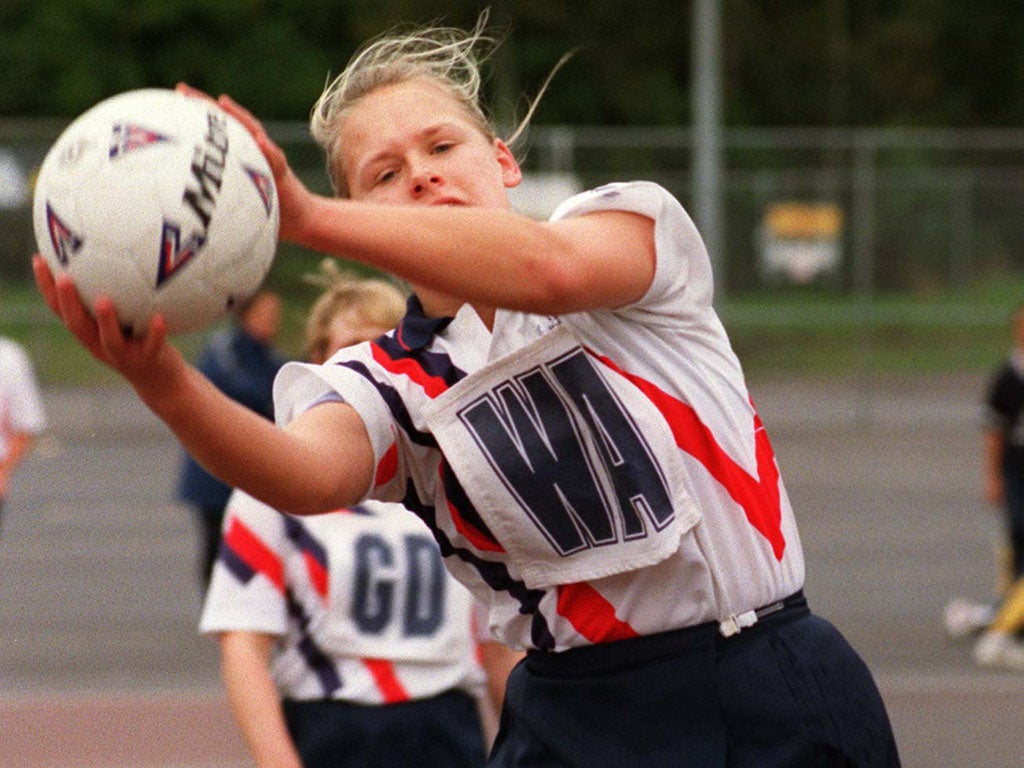Making sport more competitive? PE lessons already embarrass and alienate some students
Why not give students the choice of which activity they partake in?

Your support helps us to tell the story
From reproductive rights to climate change to Big Tech, The Independent is on the ground when the story is developing. Whether it's investigating the financials of Elon Musk's pro-Trump PAC or producing our latest documentary, 'The A Word', which shines a light on the American women fighting for reproductive rights, we know how important it is to parse out the facts from the messaging.
At such a critical moment in US history, we need reporters on the ground. Your donation allows us to keep sending journalists to speak to both sides of the story.
The Independent is trusted by Americans across the entire political spectrum. And unlike many other quality news outlets, we choose not to lock Americans out of our reporting and analysis with paywalls. We believe quality journalism should be available to everyone, paid for by those who can afford it.
Your support makes all the difference.A recent report from Ofsted reveals that PE lessons aren’t meeting requirements, apparently not being “strenuous” enough.
The Department of Education have responded - in their typical fashion of attempting to make the current education system resemble their own schooldays as closely as possible - responded by vowing to make PE more competitive.
All of this was news to me, I’ll admit, given my own experience of PE was somewhat reminiscent of The Hunger Games, albeit with more running till blue in the face into howling, horizontal rain. For a chubby, unpopular, dyspraxic girl in the middle of the turmoil of puberty, PE was a cruel and unusual form of ritual humiliation. And I’m not the only one: as soon as I tweeted the Ofsted report, my replies were flooded with PE horror stories.
As Sophie Warnes identified, the way PE lessons are structured really aren’t for everyone. Physical activity is vitally important for health, but PE at school has put countless people off exercise for life. The way it’s done is wholly unsuitable for a lot of people: girls, people with disabilities, gay kids, to name but a few. It needs to change, and thanks to my own hideous experiences, I have a few solutions to the problem.
Firstly, ditch group showers. The last thing young people need as their bodies change is to be forced to be naked amid their peers. It’s such a minefield for bullying: maybe you’re too flat-chested, maybe you’re too big; the bullies will find some way of shaming you for the body you have. I don’t know who thought it would be a good idea to throw young people in the middle of puberty into a room naked together, but it opens up opportunities for abuse that will stay with you long after the bell has rung. And even if you’re not a target for bullying, it can’t be pleasant getting naked in a group while living under patriarchy, and all the body-shaming nonsense that comes with it.
Secondly, let people choose what they want to do. Even the most hardened PE-hater will have something they enjoy. For me, it was hockey. I wasn’t particularly good at it, but it was pleasing to have a stick in my hand and fantasise about extracting vengeance on those who verbally abused me on a daily basis. I also rather liked gymnastics: again, I wasn’t much good at it, but I was impressed by the things my body could do that I’d never thought possible. This compromise means that those who enjoy competition can still play competitive sports, while those who tend to get screamed at and ostracised for being useless at football don’t have to be subjected to that treatment any more.
And finally, it’s thoroughly necessary to actually teach young people how to do things in their PE lessons. There seems to be a prevailing assumption amongst PE teachers that people can just run, without any training in how to do it, and that, when passed a cricket bat some sort of sacred knowledge will flow through its handle, instilling the bearer with an understanding of the byzantine rules of the game. Being yelled at to do something you have no idea how to do is no use whatsoever in learning how to do it - and, possibly, learning that this is an enjoyable activity.
Of course, these simple suggestions would require a radical overhaul in how PE is taught, and I suspect, for political reasons, they would be unpopular. The current thinking from the policymakers is it never did them any harm, and what doesn’t kill you makes you stronger. The current thinking is set up against making vulnerable people feel safer, and in favour of rampant competition - this is, after all, the rationale behind the new PE curriculum. The Department of Education may have spoken out against a “prizes-for-all culture”, but they’re neglecting what is possibly the most important prize to win: the health and wellbeing of future generations of young people.
Join our commenting forum
Join thought-provoking conversations, follow other Independent readers and see their replies
Comments